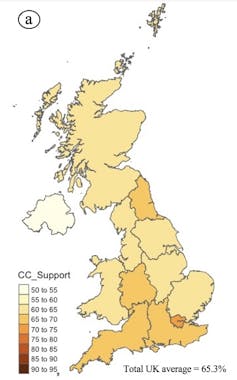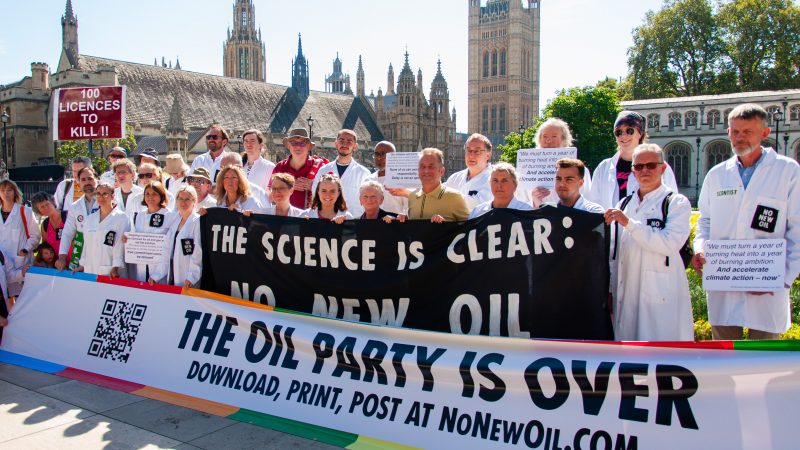100 US Officials Sign Memo Decrying Biden’s Backing of Israeli ‘War Crimes’ in Gaza

Original article by BRETT WILKINS republished from Common Dreams under Creative Commons (CC BY-NC-ND 3.0).
The State Department and USAID staffers denounced the president’s “unwillingness to de-escalate” Israel’s relentless attacks on Gaza, which have killed more than 11,000 Palestinians.
One hundred U.S. foreign service officials have signed a “scathing” internal memo blasting President Joe Biden’s “unwillingness to de-escalate” Israel’s assault on Gaza and his failure to stop Israeli “war crimes and/or crimes against humanity” in the embattled Palestinian enclave.
Axios reported Monday that the five-pageinternal dissent memo was signed by officials at the State Department and the U.S. Agency for International Development (USAID). The memo was reportedly organized by Sylvia Yacoub, a foreign affairs officer in the State Department’s Bureau of Middle East Affairs who earlier this month accused Biden of being “complicit in genocide” as Israeli forces indiscriminately bombarded the Gaza strip by air, land, and sea—killing thousands of Palestinians, mostly women and children.
“Members of the White House and [the U.S. National Security Council] displayed a clear disregard for the lives of Palestinians, a documented unwillingness to de-escalate, and, even prior to October 7, a reckless lack of strategic foresight,” the memo states.
The missive accuses Biden of “disregarding the lives of Palestinians,” over 40,000 of whom have been killed, wounded, or gone missing since Israel launched its retaliatory war that has also displaced over 1.5 million of Gaza’s 2.3 million people.
Israel’s relentless attacks and its cutting off of electricity, food, and fuel supplies to the already besieged territory “all constitute war crimes and/or crimes against humanity under international law,” the memo asserts. “Yet we have failed to reassess our posture towards Israel. We doubled down on our unwavering military assistance to the [Israeli government] without clear or actionable red lines.”
Responding to the October 7 Hamas-led attacks on Israel that killed around 1,200 people, Biden has repeatedly proclaimed his “unwavering” support for Israel and requested another $14 billion in U.S. armed assistance to the key Middle East ally—which already receives nearly $4 billion from Washington annually.
The president has dismissed calls to cut or place conditions on U.S. aid, while Biden administration officials have been derided for claiming they have no leverage over Israel.
Biden has also rebuffed widespread and growing calls for a cease-fire in Gaza, instead advocating for a so-called “humanitarian pause” to allow civilians to flee and aid to enter the strip.
The signers of the memo denounce Biden for “questioning the number of deaths” in Gaza by saying he had “no confidence” in Palestinian health officials’ casualty reports—figures deemed reliable by United Nations agencies, human rights groups, international and Israeli mainstream media, and even the State Department.
Biden was accused of “genocidal denial” following his remarks. Directly contradicting the president, U.S. Assistant Secretary of State for Near Eastern Affairs Barbara Leaf warned last week that the death toll in Gaza may be “even higher” than reported, as thousands of bodies lie unrecovered beneath the rubble of bombed buildings.
The memo’s signers also accused the president of “spreading misinformation” about the war.
Axios said the memo was sent to the State Department’s policy office on November 3 through the official dissent channel established during the Vietnam War era to allow diplomats to express their disapproval of U.S. policies and practices. Dissent memos are meant to stay within the agency, but are sometimes leaked to the public.
Multiple dissent memos about the Gaza war are currently being circulated within the State Department, according toPolitico.
A State Department spokesperson told Axios that the agency “is proud there is an established procedure for employees to articulate policy disagreements directly to the attention of senior department leaders without fear of retribution.”
“We understand—we expect, we appreciate—that different people working in this department have different beliefs about what United States policy should be,” the spokesperson added.
Original article by BRETT WILKINS republished from Common Dreams under Creative Commons (CC BY-NC-ND 3.0).





